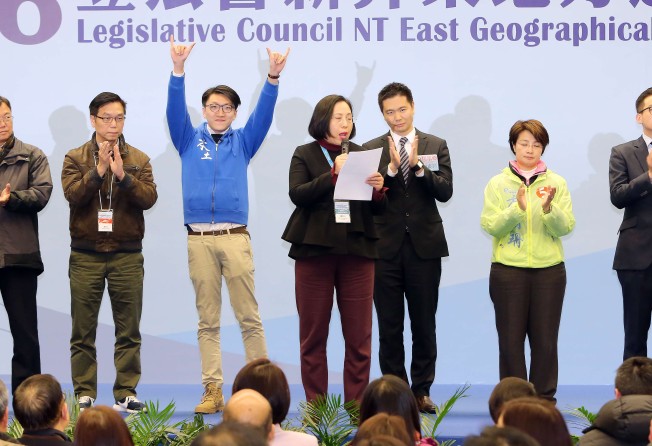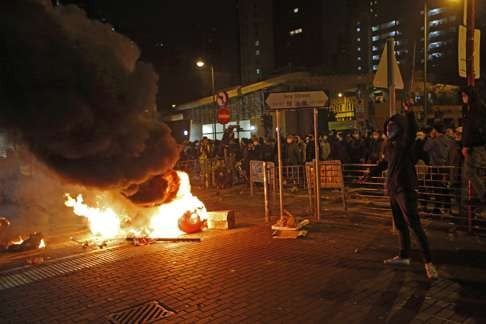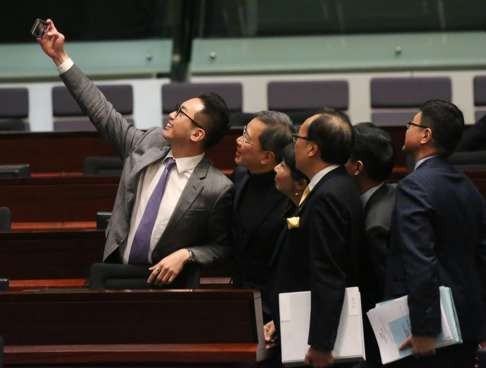Hong Kong’s pan-democrats must unite in battle for survival ahead of key legislative election
Albert Cheng says the rise of militant localist groups has eaten into the voter base for mainstream democratic parties, who must lose no time in working together to prepare for the upcoming polls

The New Territories East by-election has been branded a dress rehearsal for the Legislative Council poll on September 4. It is now clear that the activists behind the violent protests in Mong Kok are poised to make their way into the legislature.
Edward Leung Tin-kei, who was on bail in connection with alleged rioting, lost in the by-election but managed to garner more than 66,000 ballots, 15.4 per cent of the vote. This level of popularity can be translated into at least one Legco seat under the proportional representation system. Leung is the standard bearer of Hong Kong Indigenous, which denounces mainland visitors as intruding on Hong Kong’s way of life. It is one of the radical bodies to emerge from the 2014 Occupy Central campaign that endorse the use of force as a legitimate means against the unpopular government. They seek autonomy for Hong Kong beyond 2047, when “one country, two systems” is supposedly due for review, and insist there is no “bottom line” for their political struggle.
Apparently based on confidential government surveys, Executive Council member Cheung Chi-kong estimated that 5.5 per cent of Hong Kong people are sympathetic to their cause. The “militant localist” groups have obviously eaten into the pan-democrats’ traditional support base. November’s district council elections also pointed to this trend.
The pan-democrats are in dire need of a major repositioning to retain their influence.
Today’s voters are discontented with the status quo. That includes the ageing leadership of the pro-democratic factions. It’s time for the old guard to make way for their second and third in line to take over the helm; its not a matter of political decency but survival.
The demand for change is loud and clear. The outcomes of the by-election have sounded the alarm bells not only for the government and its supporters, but, more importantly, for the pan-democrats. The Civic Party and Democratic Party should consider a merger to present themselves with new vigour to the middle class. The Labour Party, the Association for Democracy and People’s Livelihood, the Neighbourhood Workers Service Centre and other smaller groups should be welcomed on board.
In contrast with localism groups, a united democratic front needs to insist on non-violence. The vast majority of residents want to see the back of Chief Executive Leung Chun-ying. At that same time, they do not condone youngsters hurling bricks at the police.

They should take Benny Tai Yiu-ting’s “thunderbolt plan” seriously. He is confident that non-establishment candidates can win half the 70 seats up for grabs, provided they can put aside their sectorial interests and personal agendas to work under a concerted strategy. Tai has urged the pan-democrats to sign up at least 10,000 voters in each of the five geographical constituencies. They would withhold their ballots until the last moment, to vote tactically in response to exit poll results. The goal is to enable pro-democracy nominees not listed as the first two preferences on the ticket to be returned under the “largest remainder” voting arrangement.

The pan-democrats are not known for their unity. It also remains to be seen how exit poll data can be calibrated for tactical voting. Yet, the prospect of a Legco dominated for the first time by the opposition cannot be dismissed lightly.
It will be easier said than done. The Civic and Democratic parties are divided houses. This is probably their last chance. They had better jump on it before they are rendered irrelevant in the polarising political landscape.
Albert Cheng King-hon is a political commentator. [email protected]
